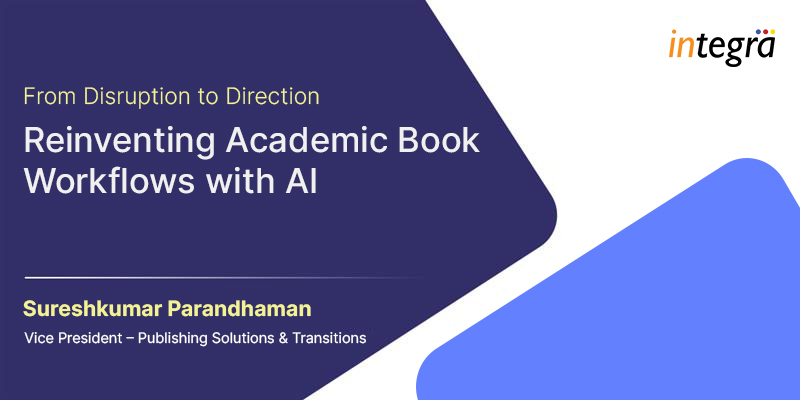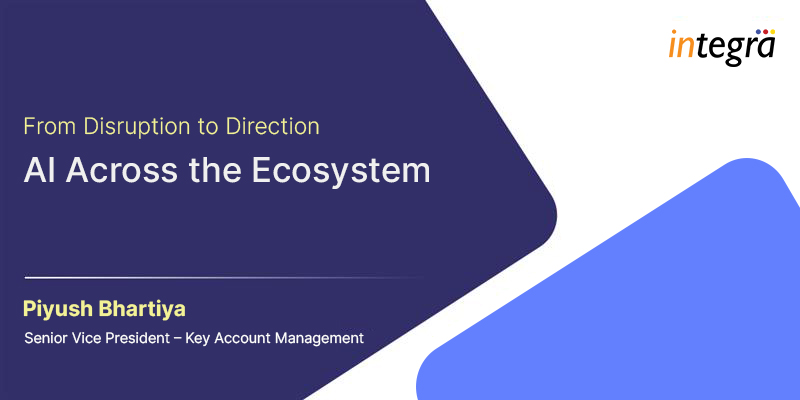Beyond Automation: How AI Can Elevate Editorial Integrity in Scholarly Publishing

Scholarly publishing is undergoing a period of accelerated change, shaped by breakthroughs in artificial intelligence, automation, and the increasing complexity of manuscript submissions. Journal editors and publishing professionals now face a dual challenge: a surge in submission volumes and the rise of sophisticated content, sometimes generated by AI or originating from coordinated paper mills. Traditional editorial workflows are feeling the strain.
The real question is no longer whether to adopt AI tools, but how to implement them strategically, while safeguarding the trust, quality, and credibility that underpin scholarly communication.
Redesigning Workflows: A Strategic AI–Human Editorial Framework
Editorial teams today must manage more submissions, more complexity, and more scrutiny than ever before. The solution lies not in replacing human expertise but in integrating AI to complement it. A symbiotic AI–human workflow enables machines to handle repetitive, mechanical tasks while editors focus on nuanced decisions requiring judgment, context, and ethical oversight.
Here’s an eight-stage editorial framework designed to integrate AI thoughtfully across the manuscript lifecycle:
1. Intelligent Submission Processing
AI can take on routine intake tasks, such as metadata validation, file checks, and basic categorization, so that human attention starts at the right point: assessing complete, structured, and ready-for-review submissions.
2. Comprehensive Pre-Flight Screening
AI tools can conduct rapid, multilayered screening, such as:
- Technical validation for formatting and completeness
- Language and style analysis to flag readability or reference issues
- Ethics and integrity checks to detect plagiarism, image manipulation, or data inconsistencies
- Scope matching using natural language processing to route submissions to the right journals
3. Strategic Filtering and Prioritization
AI systems can flag submissions that fall short of minimum quality or ethical thresholds, freeing up editors to focus on promising or borderline cases where human judgment is most needed.
4. Enhanced Human Decision-Making
Editors, supported by AI-generated insights, make decisions based on originality, clarity, relevance, and novelty. Just as diagnostic tools support physicians without replacing their expertise, AI provides signals, but interpretation remains human.
5. Intelligent Reviewer Selection
AI can analyze reviewer expertise, past publications, availability, and diversity metrics to suggest potential reviewers. Human editors finalize the selection to ensure contextual fit and mitigate bias or conflicts of interest.
6. Augmented Peer Review
AI-powered tools can assist reviewers through:
- Summarizing key manuscript points
- Validating references and citations
- Suggesting structural improvements to reviews
- Supporting speech-to-text and generative drafting within secure, publisher-managed platforms
These tools reduce friction and enhance reviewer focus while ensuring that substantive review remains entirely human-led.
7. Decision Support, Not Decision Making
AI can help editors synthesize reviewer feedback and identify discrepancies, but the final verdict remains a human responsibility, grounded in ethical and academic considerations.
8. Quality Assurance and Production Support
Post-acceptance, AI can aid in formatting checks, metadata normalization, and disclosure validation. Editors retain final control to ensure accuracy, tone, and adherence to journal policies.
Elevating Peer Review, Not Replacing It
Peer review has long been criticized as slow or inconsistent, but it’s also an indispensable pillar of scholarly trust. Rather than overhaul the system, we must reinforce it by addressing systemic stress points, starting with reviewer support.
Key areas of improvement include:
- Diversity: Ensuring a broad range of perspectives
- Recognition: Acknowledging reviewer contributions
- Training: Equipping reviewers with evolving standards and tools
- Efficiency tools: Providing AI assistance to reduce friction, not intellectual rigor
New models, like transparent peer review and journal-level peer review quality ratings, can also strengthen accountability and trust.
Impact Across the Ecosystem
AI-powered workflows do more than help editors. They bring tangible benefits to every stakeholder:
- Authors gain faster feedback and greater clarity
- Reviewers experience less manual strain and better tools for structured evaluations
- Publishers benefit from increased scalability, compliance, and process transparency
- Institutions see enhanced credibility and streamlined editorial governance
When these tools are delivered within secure, publisher-controlled environments, they enhance, not erode, trust across the scholarly ecosystem.
Guiding Principles for AI Integration
To ensure responsible, effective AI adoption in editorial workflows, organizations should follow these principles:
- AI should assist, not replace, human discernment
- Efficiency should not come at the cost of oversight or ethics
- Editorial decisions must always remain human-led
- All AI-supported tasks must take place in secure, publisher-managed environments
- Adopt solutions aligned with industry guidelines (e.g., COPE, STM Integrity Hub)
Equally important is selecting vendors and partners committed to ethical AI development, transparency, and accountability.
Building the Future of Editorial Integrity in Scholarly Publishing
The future of scholarly publishing lies not in choosing between human expertise and artificial intelligence, but in integrating both intelligently. AI can support scale, consistency, and early error detection, but the values of discernment, ethical reasoning, and deep engagement remain irreplaceably human.
By building thoughtful, secure, and transparent editorial systems, where AI and human judgment work in tandem, publishers can meet the challenges of volume and complexity while reinforcing the trust that defines scholarly communication.
The responsibility is clear. The opportunity is real. The time to act is now.
At Integra, we celebrate the contributions of editorial professionals, recognizing their invaluable service to the scholarly community. Our advanced tools empower them, ensuring they continue to play a crucial role in advancing human knowledge through research. As a trusted partner, we offer human-led, technology-assisted solutions tailored for editorial, research integrity, and peer review management.
This post is adapted from an original blog article by Ashutosh Ghildiyal, first published on Editor’s Café. To read the full article, please visit: https://editorscafe.org/details.php?id=76
Recent Blogs

From Disruption to Direction: Reinventing Academic Book Workflows with AI

From Disruption to Direction: AI Across the Ecosystem


